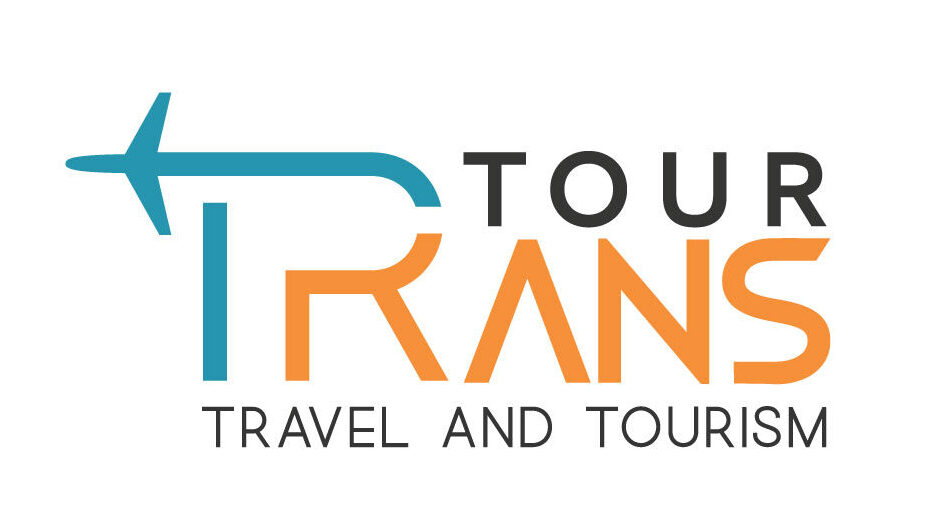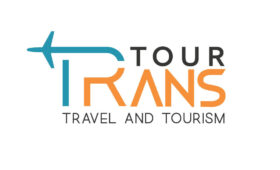Traveling to a new destination is indeed an exciting and fulfilling experience. It offers an opportunity to escape from the daily grind, immerse oneself in new cultures, try new cuisines, and create lifelong memories. However, it is essential to acknowledge that traveling to a new destination can also be challenging, especially if you are not adequately prepared.
To have a safe, enjoyable, and hassle-free journey, careful planning and research are necessary. This means that you need to put in the effort to research your destination, identify the must-see attractions, and create an itinerary that allows you to see and do as much as possible. With the rise of the internet and travel blogs, there is a wealth of information available to help you plan your trip. Take the time to read reviews, watch videos, and join online travel forums to learn about your destination and avoid any unpleasant surprises.
When it comes to preparing for your trip, there are several things that you need to consider.
Passport and Visa Requirements
In light of the ongoing COVID-19 pandemic, it is essential to check the COVID-19 guidelines and regulations of your destination. Research the vaccination or testing requirements, quarantine periods, and mask mandates in place. Additionally, check whether the country is accepting travelers from your home country. Be aware that these regulations can change quickly, so stay updated and flexible with your plans.
Local Customs and Etiquette
Different cultures have unique ways of interacting and communicating, so it is crucial to research the local customs and etiquette of your destination. This can help you avoid offending or disrespecting the local culture and build positive relationships with the locals. For example, in some cultures, removing shoes before entering someone’s home or temple is a sign of respect. In other cultures, it is customary to bow instead of shaking hands. Familiarizing yourself with these customs can make your trip more enjoyable and help you connect better with the locals.
Language
Learning some basic phrases in the local language can help you communicate with the locals and make your trip more enjoyable. Even if you are not fluent, knowing a few words like “hello,” “thank you,” and “goodbye” can make a positive impression and enhance your travel experience. Consider downloading a language app or hiring a local guide who speaks your language to help you navigate the language barrier.
Currency
Familiarize yourself with the local currency and exchange rates before traveling. You do not want to find yourself in a situation where you cannot pay for something or have no cash to tip. Carry a mix of cash and credit cards to avoid being stranded if one of them does not work. Additionally, be cautious about exchanging money at airports or tourist areas as they may charge higher fees.
Transportation
Research transportation options available at your destination, including public transport, taxis, car rentals, or bike rentals. Knowing the available options and prices can help you save money and make your travels more convenient. Additionally, familiarize yourself with the traffic laws and driving customs of the destination country before renting a car. It may also be helpful to download transportation apps to help you navigate the local public transport system.
Accommodation
Research accommodation options, read reviews, and book a place that meets your needs and budget. Staying in a comfortable and safe place can make your trip more enjoyable and relaxing. Additionally, check the location of your accommodation to ensure it is near the attractions you plan to visit. Consider booking accommodation with a flexible cancellation policy in case of any unforeseen events.
Safety
Be aware of your surroundings: Being aware of your surroundings is essential to avoid potential dangers. Stay alert, especially in crowded places such as public transportation, markets, and tourist attractions. Pay attention to the people around you and be mindful of any suspicious behavior.
Keep your valuables secure: Keep your valuables such as your passport, cash, credit cards, and electronics secure at all times. Use a money belt or a neck wallet to keep your valuables close to your body, and avoid carrying them in your back pocket or a loose bag. Consider locking your belongings in a hotel safe or using a luggage lock.
Avoid unsafe areas: Do your research and avoid areas that are known to be unsafe or have a high crime rate. Ask locals or your hotel staff for recommendations on safe areas to explore. If you are unsure about a particular area, it is best to err on the side of caution and avoid it altogether.
Have emergency numbers handy: It is important to have emergency numbers handy in case of any unforeseen events. This includes the local emergency services number, your embassy’s contact information, and your hotel’s emergency contact number. Save these numbers in your phone and keep a hard copy with you at all times.
Use reputable transportation: When using public transportation, use reputable companies, and avoid unlicensed taxis. Research transportation options ahead of time and consider booking in advance. If you are driving, be aware of the local driving laws, and avoid driving at night in unfamiliar areas.
Take care of your health: Your health is just as important as your safety. Make sure to stay hydrated, get enough rest, and practice good hygiene. If you have any pre-existing medical conditions, make sure to bring any necessary medication and inform your travel companions and hotel staff.
In summary, preparing for a trip requires careful planning and research to ensure a safe, enjoyable, and hassle-free journey. While it may seem overwhelming, taking the time to research your destination and understand its requirements can make all the difference. By being adequately prepared, you can focus on creating unforgettable memories and experiences that will last a lifetime.
Before traveling, make sure your passport is valid and has enough blank pages. Some countries require specific documents or visas, so be sure to research this in advance to avoid any issues at immigration. Additionally, make copies of your passport and travel documents, and keep them in a safe place separate from the originals. In case you lose your passport, having copies can help you get a replacement quickly. Lastly, ensure that your passport is not expiring soon after your trip because some countries require your passport to be valid for six months or more after your entry.
COVID-19 Restrictions
In light of the ongoing COVID-19 pandemic, it is essential to check the COVID-19 guidelines and regulations of your destination. Research the vaccination or testing requirements, quarantine periods, and mask mandates in place. Additionally, check whether the country is accepting travelers from your home country. Be aware that these regulations can change quickly, so stay updated and flexible with your plans.
Local Customs and Etiquette
Different cultures have unique ways of interacting and communicating, so it is crucial to research the local customs and etiquette of your destination. This can help you avoid offending or disrespecting the local culture and build positive relationships with the locals. For example, in some cultures, removing shoes before entering someone’s home or temple is a sign of respect. In other cultures, it is customary to bow instead of shaking hands. Familiarizing yourself with these customs can make your trip more enjoyable and help you connect better with the locals.
Language
Learning some basic phrases in the local language can help you communicate with the locals and make your trip more enjoyable. Even if you are not fluent, knowing a few words like “hello,” “thank you,” and “goodbye” can make a positive impression and enhance your travel experience. Consider downloading a language app or hiring a local guide who speaks your language to help you navigate the language barrier.
Currency
Familiarize yourself with the local currency and exchange rates before traveling. You do not want to find yourself in a situation where you cannot pay for something or have no cash to tip. Carry a mix of cash and credit cards to avoid being stranded if one of them does not work. Additionally, be cautious about exchanging money at airports or tourist areas as they may charge higher fees.
Transportation
Research transportation options available at your destination, including public transport, taxis, car rentals, or bike rentals. Knowing the available options and prices can help you save money and make your travels more convenient. Additionally, familiarize yourself with the traffic laws and driving customs of the destination country before renting a car. It may also be helpful to download transportation apps to help you navigate the local public transport system.
Accommodation
Research accommodation options, read reviews, and book a place that meets your needs and budget. Staying in a comfortable and safe place can make your trip more enjoyable and relaxing. Additionally, check the location of your accommodation to ensure it is near the attractions you plan to visit. Consider booking accommodation with a flexible cancellation policy in case of any unforeseen events.
Safety
Be aware of your surroundings: Being aware of your surroundings is essential to avoid potential dangers. Stay alert, especially in crowded places such as public transportation, markets, and tourist attractions. Pay attention to the people around you and be mindful of any suspicious behavior.
Keep your valuables secure: Keep your valuables such as your passport, cash, credit cards, and electronics secure at all times. Use a money belt or a neck wallet to keep your valuables close to your body, and avoid carrying them in your back pocket or a loose bag. Consider locking your belongings in a hotel safe or using a luggage lock.
Avoid unsafe areas: Do your research and avoid areas that are known to be unsafe or have a high crime rate. Ask locals or your hotel staff for recommendations on safe areas to explore. If you are unsure about a particular area, it is best to err on the side of caution and avoid it altogether.
Have emergency numbers handy: It is important to have emergency numbers handy in case of any unforeseen events. This includes the local emergency services number, your embassy’s contact information, and your hotel’s emergency contact number. Save these numbers in your phone and keep a hard copy with you at all times.
Use reputable transportation: When using public transportation, use reputable companies, and avoid unlicensed taxis. Research transportation options ahead of time and consider booking in advance. If you are driving, be aware of the local driving laws, and avoid driving at night in unfamiliar areas.
Take care of your health: Your health is just as important as your safety. Make sure to stay hydrated, get enough rest, and practice good hygiene. If you have any pre-existing medical conditions, make sure to bring any necessary medication and inform your travel companions and hotel staff.
In summary, preparing for a trip requires careful planning and research to ensure a safe, enjoyable, and hassle-free journey. While it may seem overwhelming, taking the time to research your destination and understand its requirements can make all the difference. By being adequately prepared, you can focus on creating unforgettable memories and experiences that will last a lifetime.




